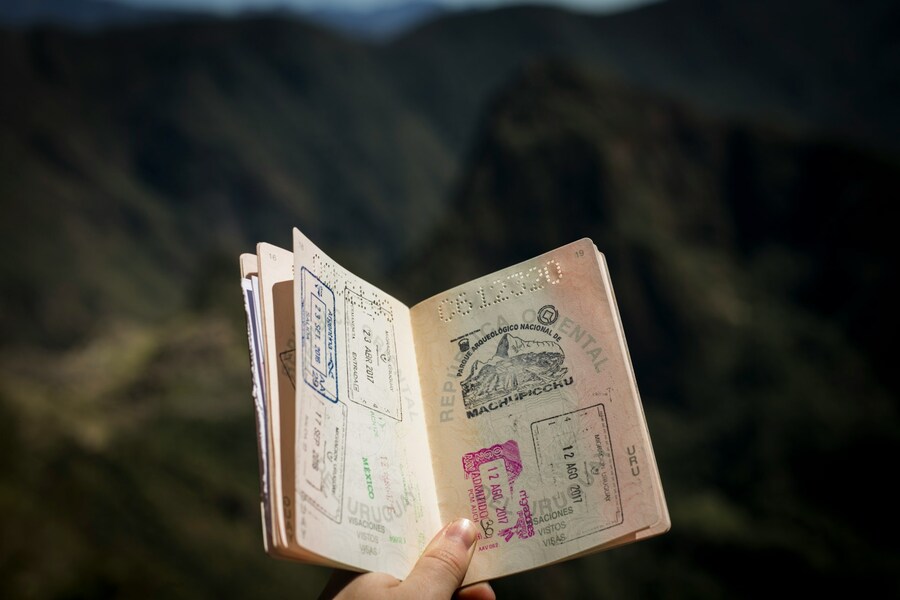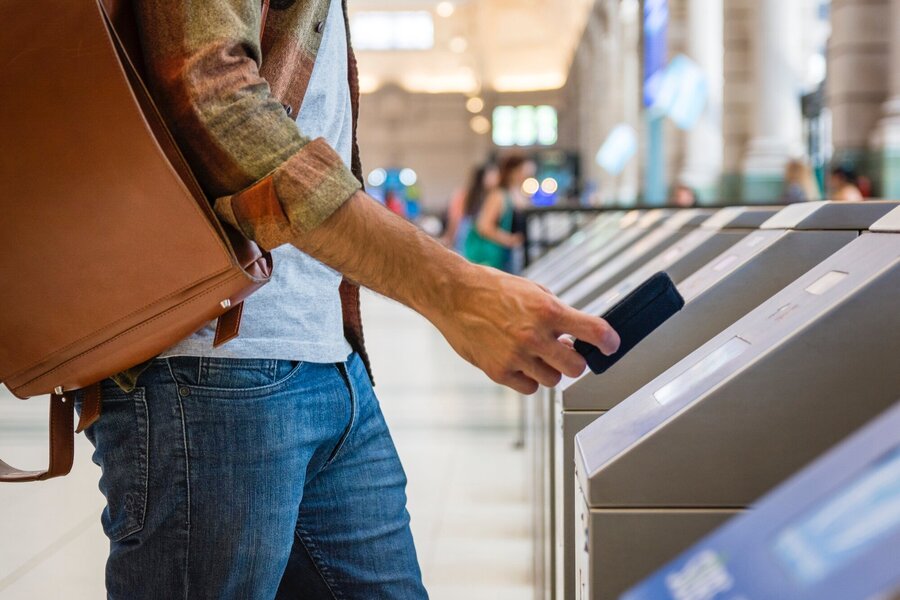Across the nation's airports and land border crossings, tourists and various other visitors arriving in the United States have increasingly reported encountering the Trump administration's initiative of "enhanced vetting." Notably, even legal permanent residents, such as green card holders, and naturalized citizens have been subjected to additional interrogation and thorough searches.
These reported incidents have subsequently raised significant questions concerning the most effective strategies for individuals crossing into the USA, the fundamental rights of travelers at the border, and the legal parameters governing the search of personal electronic devices and luggage.
Consequently, the following information outlines several key aspects that tourists, legal residents, and citizens should be aware of prior to visiting or returning to the United States.
Phone locked? Entry denied? What are your rights at the U.S. border?
Got a visa or ESTA? Make sure it matches your travel plans

Source: Agus Dietrich/Unsplash
The American Civil Liberties Union asserts that United States border officials possess "wide-ranging discretion" in the authority to refuse entry to individuals seeking to cross the border. Such a decision can be predicated upon suspicion held by these officials that the individual is attempting to enter the country for a purpose that deviates from the stated intent of their visa or Electronic System for Travel Authorization (ESTA) – for instance, if an individual holds a tourist visa but circumstances suggest a potential plan to engage in employment within the USA.
Michael Wildes, a New Jersey-based immigration lawyer who notably managed Melania Trump's immigration process to the United States, stated the following:
"We have observed instances where individuals have been detained merely for indicating 'Open to Work' on the professional networking platform LinkedIn. This online declaration is interpreted by border officials as evidence that their visit extends beyond mere leisure activities, such as visiting Disneyland or attending a wedding."
Cheryl David, an immigration lawyer practicing in NYC, emphasized that the fundamental regulations governing entry into the United States haven't undergone any formal changes. However, she noted the discernible implementation of a strict "zero tolerance policy" in the enforcement of existing immigration laws and regulations at the border.
Earlier this year, the family of Becky Burke, a 28-year-old British tourist, reported that she was stopped by U.S. border officials in Washington State while en route to participate in a work-exchange program. This program involved an arrangement where she intended to exchange domestic chores for complimentary accommodation. Despite the absence of monetary exchange, these arrangements were interpreted by border officials as constituting work, thereby violating the conditions associated with her tourist visa. Consequently, Ms. Burke was detained for a period of 19 days before being deported back to Britain.
While the practice of detaining individuals seeking entry as prospective tourists remains relatively uncommon, the occurrence of deportations stemming from instances of incorrect or inappropriate travel documentation isn't infrequent.
Citizens, get ready for extra screening too!

Source: freepik/Freepik
Should inquiries arise pertaining to a passenger's travel documentation, border officials are authorized to remove them from the regular processing line and subject them to supplementary screening procedures, during which time their personal luggage and electronic equipment, including laptops and cellular telephones, may be thoroughly examined.
It's important to note that even individuals holding green cards, signifying lawful permanent resident status, and those who have undergone the naturalization process to become United States citizens may also be subjected to these more extensive screening protocols upon arrival.
The American Civil Liberties Union (A.C.L.U.) has stated that while United States citizens and lawful permanent residents cannot be legally denied entry into the country solely for their refusal to surrender their personal electronic devices for inspection, such a refusal could nonetheless result in a more protracted and involved customs clearance process.
Catherine, a 67-year-old naturalized citizen who immigrated to the United States 45 years prior, recounted that she had never previously been selected for additional questioning during immigration procedures. However, she noted that since the commencement of the Trump administration, she has been stopped on 2 separate occasions for reasons that have remained ambiguous and unexplained to her. Catherine requested to be identified solely by her middle name due to concerns that publicly speaking out could potentially jeopardize her naturalized citizenship status.
In her most recent experience, Catherine was returning to the United States from Argentina when she and her husband were stopped at an airport located in Dallas. The initial border control process at this location was automated, with passengers scanning their passports to proceed through designated gates. However, when it was Catherine's turn to have her photograph taken, a large red X prominently flashed on the screen. Her husband then engaged with border officials, and the couple was eventually permitted to proceed through the immigration checkpoint.
Travelers' social media, texts, and device history might get checked

Source: Adem AY/Unsplash
Given that border control operations are technically considered to occur outside the territorial boundaries of the United States, travelers holding visas or those authorized to travel under the Electronic System for Travel Authorization (ESTA) possess a limited capacity to contest searches of their personal electronic devices, according to the American Civil Liberties Union (A.C.L.U.). Moreover, attempting to object to such searches carries the potential risk of being denied entry into the country.
Tom McBrien, a legal expert associated with the Electronic Privacy Information Center (EPIC), a non-profit organization based in Washington D.C. dedicated to Internet privacy, explained that there are generally 2 distinct categories of electronic device searches conducted at the border: manual searches and advanced searches. Manual searches typically involve the inspection of an unlocked phone's contents. Courts have generally drawn an analogy between this type of search and the examination of physical luggage, and consequently, have often permitted manual searches to proceed without the necessity of obtaining a formal warrant, Mr. McBrien noted.
An advanced search, sometimes referred to as a "forensic" search, entails connecting an external technological device to an individual's phone in order to conduct a comprehensive scan of its data and contents. The legal requirement for obtaining a warrant prior to conducting such a search varies across different federal judicial districts, with some districts mandating a warrant while others don't, according to Mr. McBrien's explanation.
Mr. McBrien, along with other experts in the field of privacy law and digital security, advise individuals to proactively remove or delete any data, files, or communications stored on their electronic devices that they would prefer to keep private or wouldn't want border officials to read or view, prior to their arrival at the United States border.
In addition, Mr. McBrien suggested that he routinely advises his clients to disable biometric authentication features, such as Face ID or Touch ID on their iPhones before crossing the border. This precautionary measure makes it more difficult for an officer to access the device, as it would require more than simply holding the phone up to the client's face or placing their finger on the sensor to unlock it. He further recommended that an even more effective strategy is to completely power off the phone before undergoing border control procedures, as mobile phones typically require the entry of the full passcode when they are subsequently turned back on.
Should an individual decline to unlock their personal electronic device when explicitly requested by authorities, those authorities are legally entitled to seize the device. Moreover, in order to access the device's contents, they will most likely be required to procure a formal warrant, the expert added. However, it's critical to understand that visitors who refuse to comply with a request to unlock their phone may face the consequence of being denied entry into the United States.

Source: Alex Underwood/Unsplash
Nevertheless, Mr. Wildes, the immigration lawyer based in New Jersey, emphasized that the primary factor border patrol officers scrutinize during inspections is the consistency and coherence of the information provided by the individual seeking entry. Any discrepancies or inconsistencies in their statements or presented documentation can raise suspicion and potentially lead to further scrutiny or adverse action.
According to Mr. Wildes, if a forensic examination of an electronic device reveals a deactivated social media account, border officials may request that the individual reactivate the account for inspection. Similarly, if an email account has been recently deleted, they possess the authority to request access to its contents or related records for review.
The realm of social media has emerged as a significant area of concern for many travelers, the expert further noted, particularly for "so many people who don't fully comprehend the extent to which their online activity can be deemed actionable" by immigration authorities and potentially impact their admissibility to the United States.
Ms. David, the immigration lawyer, recounted an instance involving a client who held a valid student visa but was nonetheless denied entry into the United States during the Biden administration. The reason cited for the denial was the presence of photographs on the client's personal mobile phone depicting them posing with firearms, which border officials interpreted as a potential threat to the security and well-being of the United States, she explained.
Mr. Wildes advised that the most prudent course of action for individuals interacting with border officials is to maintain complete honesty in their responses and to ensure they possess a clear understanding of the relevant laws and regulations governing entry into the United States. Transparency and knowledge of the legal framework are key to navigating the border control process smoothly.
In the event that an individual encounters difficulties or legal complications at the border, the expert suggested that the most advantageous strategy for visitors might be to formally withdraw their expressed intention to enter the United States. In the majority of such cases, this action allows the individual to return to their country of origin without incurring more severe immigration consequences.
Streamline your airport experience with our booking platform – ParkingNearAirports.io!

Source: Simeon Galabov/Unsplash
Before facing border checks, simplify your airport arrival with smart planning! If you're flying into the United States, make sure to "purchase to fly" essentials, such as parking, in advance to avoid last-minute stress. Compare rates for airport parking on ParkingNearAirports.io – our platform offers affordable airport parking near major hubs, saving you time and money. Whether you need short-term or long-term spots, booking ahead ensures a smoother transition from flight to security lines!






